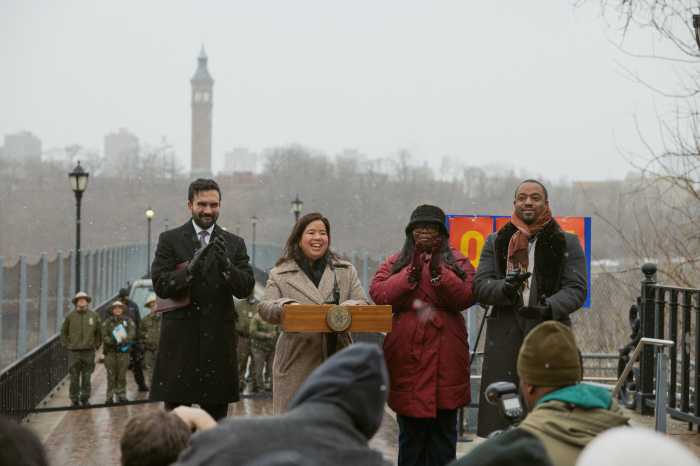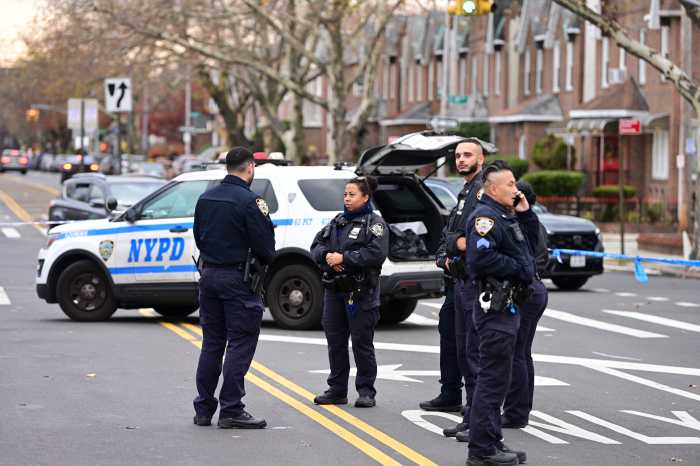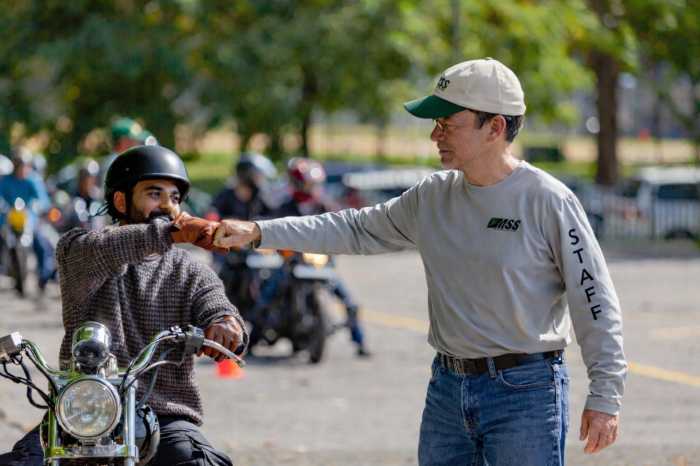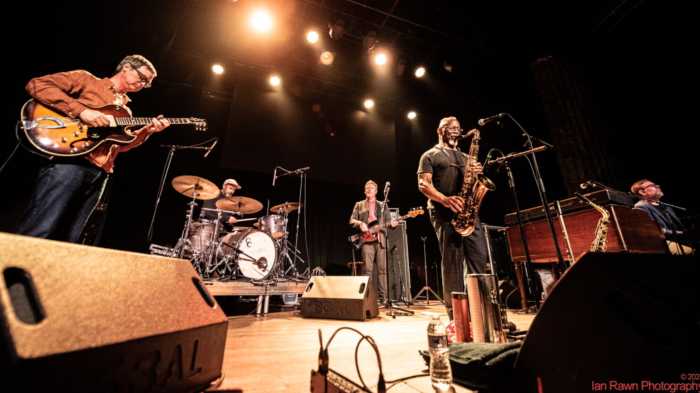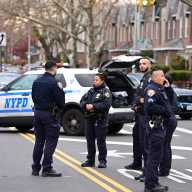DUMBO artists are certainly
an endangered species these days — but now one man is fighting eviction
by claiming protection under the federal Endangered Species Act.
Steve Ludlum, a painter, photographer
and amateur botanist, isn’t seeking the federal protection for himself,
but for the nearly 1,000 species of imported orchids that he raises in
his third-floor hothouse.
He may be onto something:
Some of his orchids are classified as “endangered” under international
law.
The owner of the former soap
factory under the Manhattan Bridge wants to flatten the building to build
a 10-story loft-style condo tower.
“Me and my plants aren’t
going to take the bullet so a developer can make money,” said Ludlum,
standing in the humid, man-made ecosystem he has spent $100,000 building.
“The last landlord didn’t
mind. He thought the whole thing was neat.”
Ludlum’s orchids fill
a room the size of a studio apartment. Five ceiling fans and a ventilation
system regulate the temperature. A hand-rigged irrigation system pipes
water to the plants, sending earthy runoff to a drain behind the building.
Last week, the unassuming
botanist — a regular on the orchid circuit — filed a lawsuit
against his landlord in federal court, charging that his eviction would
“result in [the] loss of endangered species” and violate laws
protecting his threatened Phragipedium and Paphiopedilum “ladyslipper”
orchids.
“Orchid plants are habitat-specific,”
he charged in court papers. “Removal from their current location,
which is a necessary and required controlled environment, shall constitute
a taking of the protected orchid plant.”
Ludlum said the building’s
current owner, identified in city documents as Henry Kotowitz, would welcome
his quiet enterprise were it not for the fact that a condo conversion
would be so lucretive.
Neither Kotowitz nor his lawyer returned phone calls from The Brooklyn
Papers.
The case is the first of its
kind, but wildlife experts said that Ludlum will face problems proving
that his imported flora require protection from the feds.
Federal law protects endangered
species from “take” or “harm” — terms that can
include eviction — but the law only applies to plants protected under
state jurisdiction, meaning Ludlum would have better luck if the orchids
were native to New York.
“It’s hard to know
what kind of [federal] protections there could be for an international
plant,” said Edward Grace, senior special agent for the Fish and
Wildlife Service.
Neighbors know Ludlum as “the
orchid man” and recognize his apartment by the orange glow his high-intensity
greenhouse lights send out of the battered old factory.
His quirky connection to he
neighborhood goes beyond his crops.
Ludlum was in DUMBO on 9-11,
and, as he watched the World Trade Center collapse, took a photograph
that ended up on the cover of The New York Times and won him a Pulitzer
Prize.
If his endangered species
lawsuit doesn’t work, Ludlum has a fallback plan: He’s also
planning to sue Kotowitz on the grounds that the plans he’s filed
with the Department of Buildings show a development that is larger than
the law allows.
Kotowitz’s architect,
Robert Scarano, is currently under investigation for allegedly ignoring
such zoning rules.


